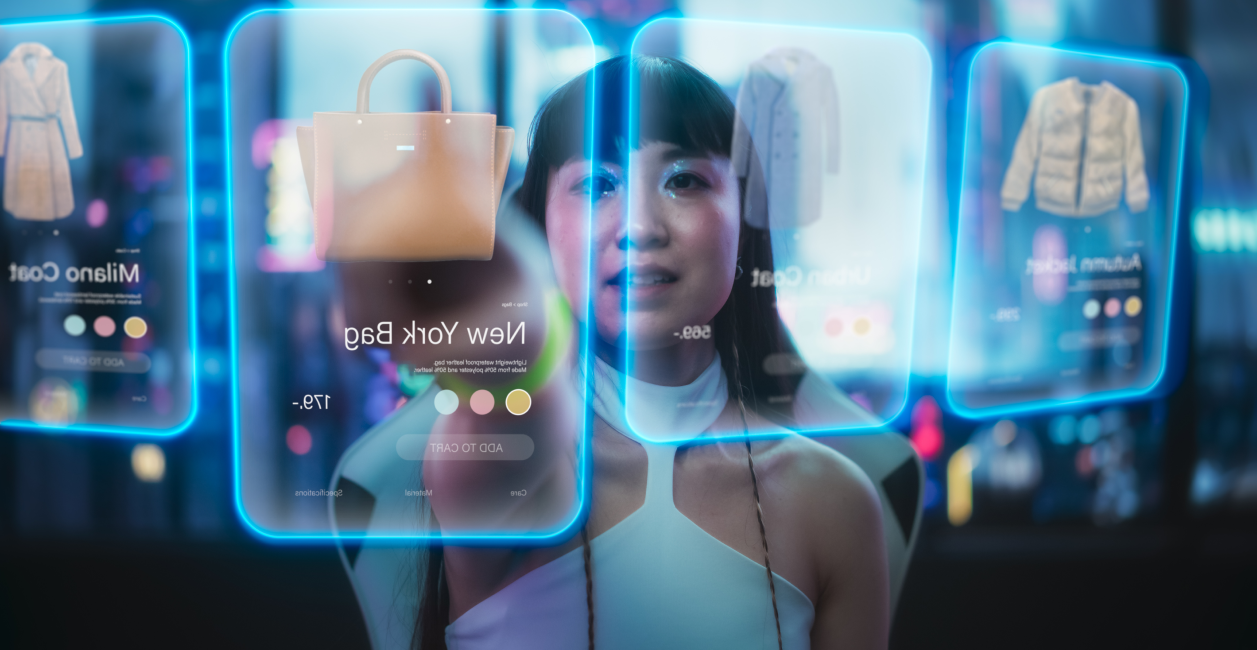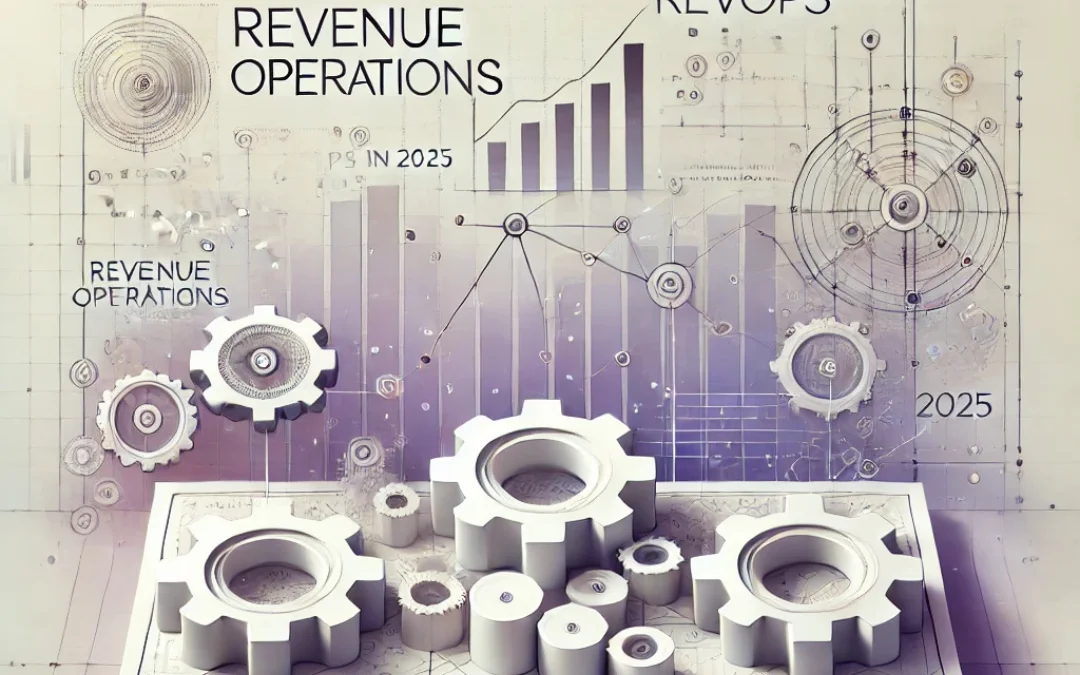Retail Revolution: AI Innovation in Action in the fast-paced world of retail, the landscape is constantly shifting, driven by the need for greater efficiency, customer satisfaction, and profitability. The key to navigating this transformation lies in embracing cutting-edge technology—specifically, AI in Retail. Artificial intelligence (AI) is no longer a distant concept; it is a reality that is reshaping how retailers operate, interact with customers, and enhance their business operations. This article delves into the exciting world of AI in Retail, exploring how AI innovation is transforming the industry and setting the stage for the future of shopping.

1. AI in Retail: A Game Changer for Customer Experience
The customer experience has always been the cornerstone of success in the retail industry. With the advent of AI in Retail, businesses now have the tools to create hyper-personalized experiences that were once unimaginable. AI algorithms analyze vast amounts of customer data to predict preferences, suggest products, and provide real-time recommendations tailored to individual shoppers.
Imagine walking into a store where the system recognizes you and suggests products based on your past purchases, browsing history, and preferences. This is no longer science fiction—it’s the power of AI at work. Retailers like Amazon have already set the bar high with their personalized recommendation systems, but even brick-and-mortar stores are catching up by integrating AI-powered technologies into their operations.
2. The Role of AI in Inventory Management
Efficient inventory management is one of the most crucial aspects of retail success. Traditionally, retailers relied on manual processes and historical data to forecast demand, which often led to overstocking or understocking. However, with the introduction of AI in Retail, inventory management has become smarter, more accurate, and highly automated.
AI algorithms can now analyze real-time sales data, track customer trends, and predict future demand with incredible precision. This allows retailers to optimize stock levels, reduce waste, and ensure that the right products are available at the right time. For example, Walmart uses AI to manage its supply chain and inventory, ensuring that products are stocked efficiently based on local demand.
Additionally, AI-powered systems can also automate the process of restocking, reducing the burden on staff and improving operational efficiency. With AI-driven inventory management, retailers can ensure that they are always ready to meet customer demand while minimizing costs.
3. AI in Retail: Enhancing the Supply Chain
A strong supply chain is the backbone of any retail operation. It ensures that products are delivered on time and in the right quantities. However, supply chains are often complex, with multiple variables to consider, from transportation to inventory levels. Here, AI in Retail offers transformative solutions to streamline and optimize the supply chain.
AI-powered systems can analyze data from various sources, such as weather patterns, traffic conditions, and geopolitical events, to predict potential disruptions and adjust supply chain strategies accordingly. For example, AI can help predict delays caused by bad weather or transportation bottlenecks, allowing retailers to proactively reroute shipments and prevent stock shortages.
AI can also optimize routes for delivery trucks, reducing fuel consumption and ensuring faster deliveries. This not only improves efficiency but also helps reduce the carbon footprint of retail operations—an increasingly important consideration for environmentally conscious consumers.
4. AI and the Future of Retail Marketing
Marketing has always been a key driver of success in the retail industry. However, traditional marketing strategies are no longer sufficient in today’s digital-first world. Consumers are increasingly expecting personalized, relevant content that speaks to their individual preferences. This is where AI in Retail truly shines.
AI enables retailers to analyze vast amounts of customer data, including browsing behavior, purchase history, and social media activity. By understanding these data points, AI can create highly targeted and personalized marketing campaigns that are tailored to each customer’s unique needs and interests. For example, retailers can use AI to send personalized emails, recommend products on their website, or even create custom ads that resonate with individual shoppers.
One of the most exciting developments in AI-driven marketing is the use of chatbots and virtual assistants. These AI-powered tools can interact with customers in real-time, answering questions, providing product recommendations, and guiding them through the purchasing process. This level of automation not only enhances the customer experience but also frees up human resources to focus on more complex tasks.
5. AI-Powered Pricing Optimization
Pricing is one of the most important factors influencing consumer purchasing decisions. Retailers need to strike the right balance between offering competitive prices and maximizing profitability. With AI in Retail, pricing optimization has become more sophisticated and dynamic than ever before.
AI algorithms can analyze market trends, competitor pricing, consumer demand, and other relevant factors to determine the optimal price for each product in real-time. This allows retailers to adjust prices based on factors such as seasonality, promotions, and consumer behavior. For example, AI can automatically lower prices for slow-moving products or increase prices for high-demand items to maximize sales and profits.
Dynamic pricing powered by AI is not just for large retailers like Amazon. Even smaller businesses can leverage AI to optimize their pricing strategies and stay competitive in an ever-changing market.
6. AI in Retail: Streamlining the Checkout Process
One of the most frustrating parts of the shopping experience is waiting in line to check out. Traditional checkout processes can be time-consuming and labor-intensive, but AI in Retail is changing the game with automated checkout solutions.
AI-powered checkout systems use technologies like computer vision and machine learning to automatically scan and process items in a shopper’s cart. Customers can simply walk out of the store without having to go through a traditional checkout line, making the entire shopping experience faster and more convenient. This type of system has been successfully implemented in Amazon Go stores, where customers can pick up products and leave without ever interacting with a cashier.
Not only does this streamline the shopping process, but it also reduces the need for staff to manage checkout lines, allowing them to focus on other aspects of customer service.
7. AI in Retail: Improving In-Store Experiences
While e-commerce continues to grow, brick-and-mortar stores are far from obsolete. In fact, many retailers are using AI in Retail to enhance the in-store shopping experience and drive foot traffic.
One innovative example is the use of AI-powered virtual try-on technology. This allows customers to virtually try on clothing, accessories, or makeup using augmented reality (AR) and computer vision. Retailers like Sephora and L’Oréal have already adopted this technology, allowing customers to see how different products will look on them without physically trying them on.
AI is also being used to improve store layouts and product placement. By analyzing customer behavior and shopping patterns, retailers can optimize store designs to guide customers through the store in a way that maximizes sales. For instance, AI can determine the most popular areas of the store and strategically place high-margin items in those zones to boost revenue.
8. AI and Fraud Prevention in Retail
With the rise of online shopping, retailers are facing an increasing threat of fraud. Payment fraud, identity theft, and account takeovers are just some of the challenges retailers must contend with. However, AI in Retail is helping businesses combat these threats and protect both customers and retailers.
AI-powered fraud detection systems use machine learning algorithms to analyze customer behavior and transaction patterns in real-time. By detecting anomalies, these systems can flag potentially fraudulent activities before they escalate. For example, if a customer’s purchase behavior deviates from their typical pattern, the system can automatically block the transaction or require additional verification.
This not only helps reduce the risk of fraud but also improves the security and trustworthiness of online shopping experiences for customers.
9. AI in Retail: The Future of Automation
Automation is one of the most significant benefits of AI in the retail industry. From inventory management to customer service, AI is driving the automation of various processes, allowing retailers to operate more efficiently and reduce operational costs.
Robotic process automation (RPA) is being used in warehouses and distribution centers to automate tasks such as sorting, picking, and packing products. This not only increases efficiency but also reduces human error and minimizes the need for manual labor.
As AI continues to evolve, we can expect even more areas of retail to become automated. From supply chain management to personalized customer service, the future of retail will be marked by even greater reliance on AI-driven automation to improve efficiency and customer satisfaction.
10. The Road Ahead: The Future of AI in Retail
The future of AI in Retail is incredibly exciting, with new innovations and applications emerging every day. As technology continues to advance, retailers will have access to even more powerful tools to optimize their operations, enhance the customer experience, and stay competitive in a rapidly changing market.
One area to watch is the continued integration of AI with the Internet of Things (IoT). By combining AI with IoT devices, retailers will be able to create smarter stores that can track customer behavior, monitor inventory in real-time, and offer personalized experiences. This will lead to even more seamless and efficient shopping experiences, both online and in-store.
In addition, advancements in natural language processing (NLP) and conversational AI will further revolutionize customer service. Chatbots and virtual assistants will become even more intelligent, enabling retailers to offer real-time, personalized support at scale.
The revolution of AI in Retail is well underway, and its impact on the industry is undeniable. From enhancing customer experiences and optimizing inventory management to improving supply chain efficiency and driving marketing efforts, AI is transforming every aspect of retail operations. As AI continues to evolve, retailers must remain agile and embrace these innovations to stay ahead of the competition. The future of retail is here, and AI is at the forefront, driving the industry toward a smarter, more efficient, and more personalized future.





More Stories
Tesla’s AI Hiring Shift: Fewer Jobs for Humans?
Upskill Now: Survive and Thrive in the AI Job Market
AI Innovation in Business: Transforming Industries